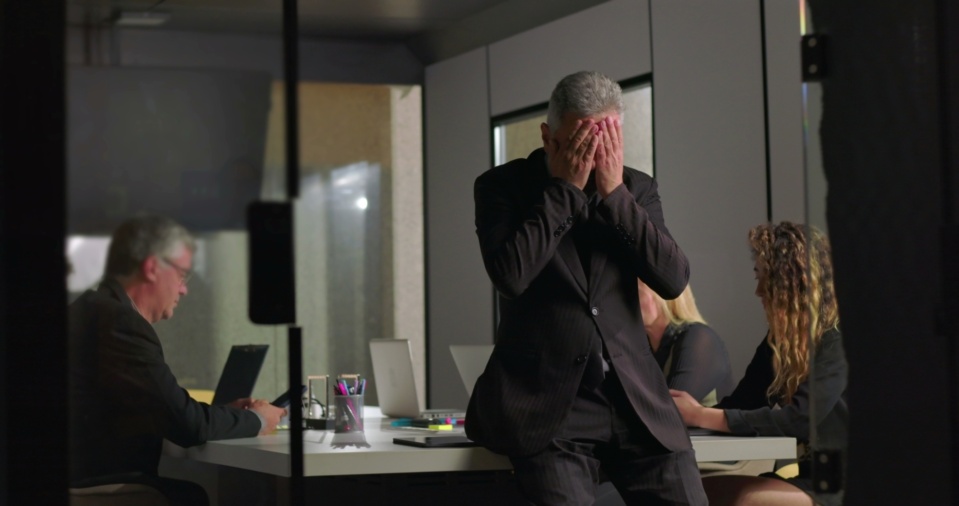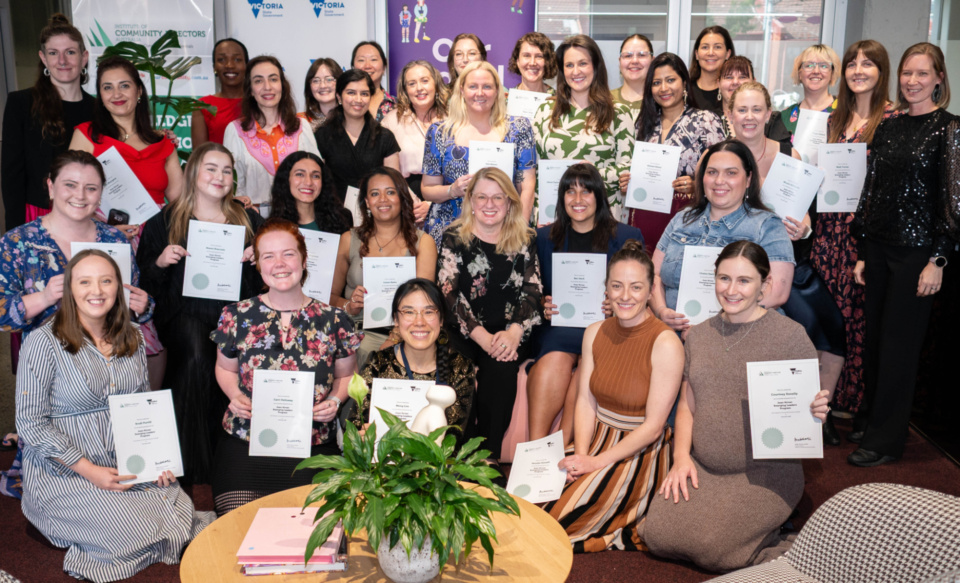
What not-for-profit leaders need to know in 2026
Posted on 12 Feb 2026
Our special NFP trends report distils the views of more than two dozen experts.
Posted on 07 Feb 2024
By Matthew Schulz, journalist, Institute of Community Directors Australia

Plugged-in not-for-profits are well aware of the benefits and the downsides of our connected society – especially when it comes to social media – but organisations should brace for a world of increasingly fragile egos.

Plugged-in not-for-profits are well aware of the benefits and the downsides of our connected society – especially when it comes to social media – but organisations should brace for a world of increasingly fragile egos.
It's a view shared by many of the experts and commentators we asked to predict the social trends we’ll face in the coming year.
Institute of Community Directors general manager Adele Stowe-Lindner believes opinions and language have become increasingly polarised with the rise and rise of Donald Trump.
Since his first election campaign, she said things have accelerated to the point where many people fear recriminations, abuse or being “cancelled" for saying the “wrong” thing.
Media and marketing specialist Brett de Hoedt stresses that it’s not one side or the other of the political fence at fault, bursting the bubble that many progressives and conservatives occupy, in his commentary Welcome to the Age of Fraught.

“You already know that “the people” are angry and no wonder. They can’t afford to rent a room (forget about buying a house), purchase a trolley full of groceries or see a GP. Inflation, covid and the growing abyss between the rich and the rest have left us a t… angsty. Meanwhile, our media and political class have never been more ready to take sides, deny facts and inflame matters.”
Separately, Our Community group managing director Denis Moriarty has hinted at the underlying power dynamics behind these battles in his commentary about identity politics.
“It’s hard not to conclude, really, that the current objections to identity politics aren’t so much to the nature of the politics as to the particular identity that’s being activated.”
The CEO of the strategic advisory firm Emergent, Holly Ransom – a friend and graduate of ICDA’s diploma and now a leadership specialist – nominated the three biggest issues for leaders in 2024 as trust, conflict resolution and crisis management.
In a LinkedIn post, Ms Ransom, wrote that “trust in a world of generative AI” would occupy a great deal of global attention this year.

“With half of the world's population heading to polls in 2024, we're going to see a weaponisation of misinformation – backed and supported by generative AI tools – take on a whole new level.”
While organisations had been dealing with declining trust for more than a decade, the acceleration of distrust would force a new conversation about how to respond, she said.
“Trust is a really important backstop in a volatile world.”
She urged organisations to be “transparent” and “emotionally attuned” when communicating with their supporters, and said leaders would need training in conflict resolution.
“Building common ground has been challenging for some time, but it's becoming increasingly fraught, largely driven by the polarisation of social media.”
She linked the lack of tolerance to “widespread burnout, leading to the fact we don't give each other as much grace as we might have when our tanks are more full [and] we’ve got more capacity to let things slide.”
She expected that the drift away from nuanced understandings towards vocal opinions was something leaders would need to grapple with, probably through good training.
Ms Ransom recently returned from a visit to the United States where she interviewed top leadership thinkers including Bill Clinton and Hillary Clinton.
She said leaders would increasingly need a “robust capability” to respond to crises, a “critical competency” for the next two years.
She said organisations should establish more “board level scenario planning” in which organisations stress-test their response plans, including their capability to respond. Organisations should also examine case studies from other organisations to learn from their examples and avoid having to repeat their mistakes.

She said leaders would need an understanding of whether to rely on internal capacity in the case of a crisis, or to build a “network of smart partnerships” and bring in expertise when was needed.
“Making sure you're getting ahead of the crisis game is going to be a critical leadership trend this year.”
Ms Stowe-Lindner said ICDA was ready to respond with resources for community leaders.
She said the organisation’s free help sheets provided foundational guidance on leadership, while tailored training, the Certified Community Director course and the Diploma of Governance course all provided more advanced leadership skills and development.
She said ICDA had just published a help sheet on social polarisation: Ten tips for leading in a polarised world.

Posted on 12 Feb 2026
Our special NFP trends report distils the views of more than two dozen experts.

Posted on 10 Feb 2026
As my family dropped our teenage son off at the airport in the first week of January to embark on a…

Posted on 11 Dec 2025
Community Directors trainer Jon Staley knows from first-hand experience the cost of ignoring…

Posted on 10 Dec 2025
As a qualified yoga instructor who learned the practice in her hometown of Mumbai, Ruhee Meghani…

Posted on 10 Dec 2025
Anyone working in an organisation knows it: meetings follow one after another at a frantic pace. On…

Posted on 10 Dec 2025
Stressed, overwhelmed, exhausted… if you’re on a not-for-profit board and these words sound…

Posted on 10 Dec 2025
The Institute of Community Directors Australia trains over 22,000 people each year, which gives us…

Posted on 03 Dec 2025
Many not-for-profit (NFP) board members in Australia are burnt out, overwhelmed and considering…

Posted on 26 Nov 2025
A roll call of Victoria’s brightest future leaders has graduated from a testing and inspiring…

Posted on 12 Nov 2025
At the Institute of Community Directors Australia, we believe that stronger communities make a…

Posted on 12 Nov 2025
Like many Community Directors members, Hazel Westbury is a community leader who isn’t easily…

Posted on 11 Nov 2025
I’ve seen what happens when fear of conflict wins out over taking a principled stand.